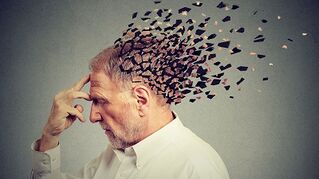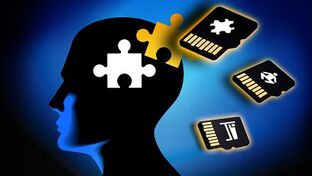
There are diametrically opposed views on drugs that improve memory. Some people say that it is useful and helps cope with increasing intellectual stress. It is indeed helpful and effective.
Others say this is just a myth. Taking such drugs has no benefit, and it is even harmful and addictive to these drugs. Let's try to consider the two views in more detail and find out who is correct.
Some information about memory
Memory is a mental function of high-level neural activity. With it, the previously received information can be accumulated, preserved and reproduced. Memory allows you to store information about the outside world or the body's response to any impact for a long time, and you can use this information for correct organization of activities in the future.
Memory includes several different but related processes.
- Memory-Enter new data, feel.
- Storage-The accumulation and perception of data, including its processing and absorption. This process allows one to learn and develop one's own thoughts and words.
- Copy and recognition-Realize the elements, actions and feelings of the past. Reproduction is involuntary (a person's elements will "float" without his will and effort) and arbitrary.
- Forget-Lost the ability to copy and recognize previously remembered elements. It can be temporary or permanent. When copying or identifying wrong or partially wrong information, there will be incomplete forgetting.
Basic types of memory
There are many types and subtypes in the memory classification. Let's talk about its main types.
- Sensory memory-Retain information from the senses after stimulation.
- Tactile memory-Retain information from the receptor through touch.
- Motor memory-Save information about the movement. Many people remember that they will execute certain movements automatically.
- Semantic Memory-Save information about facts, for example, learning stories, dates, multiplication tables.
- Short-term memory-Save information for a short time. The volume is very small.
- Long-term memory-Unlimited storage of information, including the entire life.
Rules of Memory

Few people know that there are many memory rules. This is not an invention of the author, but a real life model established and scientifically proven.
- Law of Repetition-If the information is repeated multiple times, the information can be better remembered.
- Law of Interests-If a person is interested in information, he will remember the information faster and better.
- The Law of Edge-It is best to remember the information given at the beginning and end.
- Principles of Understanding-If the information is deeply understood, it will be better remembered.
- Optimal Line Length Law-The amount of information stored should not exceed the amount of short-term memory.
- Installation Rules-Those who provide him with the device he needs to remember the information or those information will remember it faster and better.
- Law of Inhibition-When remembering similar concepts, old information will "overlap" with new information.
- Context Law-It will be faster when remembering content that can be associated with concepts that are already familiar.
- Rules of Action-If you use memorized content in practice, memory will be more effective and happen faster.
If you want to remember something faster and better and train your memory, you can use these laws.
Reasons for memory loss
- Organic Brain Injury-Acute cerebral circulatory disorders, head trauma, brain tumors.
- Other organ and system diseases-Liver, cardiovascular system diseases.
- External factors-Bad ecology, drastic changes in surrounding living conditions, stress, sleep disorders.
- Age-related changes in brain structure-The number of neural connections decreases.
- Chronic poisoning-Smoking, drug abuse, drug abuse, alcohol abuse, drug abuse (sedatives, tranquilizers).
The treatment of memory disorders
If you need to improve memory, do not prescribe medicine immediately. First, they try to apply non-drug methods. These include:
- Breathe fresh air briskly. This increases the chance of oxygen entering the brain. This can improve work efficiency.
- Standardize sleepand wake up.
- Evening training-Habits to recall all events during the day in the reverse order, that is, remembering what happened at night first and remembering what happened in the morning at the end can become an unusualTraining. It is best to do this in bed before going to bed.
- Positive attitude, don’t be addicted to it-Don’t think that you have a bad memory and no one has cancelled the effect of self-hypnosis. If you don’t remember something at some point, don’t worry, don’t get angry, but just distract, do something else, and try to remember what you forgot.
- Daily exercise-Solve crosswords, puzzles and crosswords.
- Education-Regularly learn poetry and foreign languages, and gradually increase the materials learned.
Medications for memory loss

Obviously, learning poetry, a foreign language, is not easy to solve difficult problems. You need to be "tired" and you should allocate extra time to walk and solve difficult problems, but the staff actually does not have it.
It’s much easier to take a pill, calm down and hope that the medicine has its magical effect-your memory will improve immediately, and you don’t have to do anything! Modern city dwellers are so lazy and spoiled by the fruits of civilization that few people are purposeful and willing to spend time and energy to train memory. Therefore, a person is looking for the answer to his question-what medicines exist to improve memory?
So let us consider two opposing views:
Positive opinions
Those who support these funds say that many drugs help improve the blood supply to brain cells, thereby improving their nutrition and providing more oxygen, thereby improving neuronal metabolism.Nootropics and drugs that improve blood rheology can help.
Herbal preparations have become popular, not only can improve the metabolic process of neurons themselves, but also can enhance the effect of nootropic drugs.
But it should be remembered that any (absolutely any) medicine has its own contraindications and side effects. Therefore, in each specific clinical case, it should only be prescribed by a doctor.
Negative opinions
According to some experts, tokens have another disadvantage. A few years ago, experts were puzzled by this question-are these drugs effective or just a placebo effect?
As a result of numerous studies, the effectiveness of nootropics has not been proven. There is no evidence that they have a beneficial effect on memory. One of the small studies on the effectiveness of drugs has proven that they have little effect, but not in severe cases.
There is almost no research on traditional methods and herbal preparations such as ginseng and vitamin E. The evidence is only used for herbal treatments for patients with dementia. However, there are no data on the effectiveness of the drug in relatively healthy people.
In short, what I want to say is that when considering which drugs will best improve memory, please do not forget that these drugs should be prescribed by your doctor. The doctor should also evaluate the effectiveness in each case. Don't rely on the advice of friends, neighbors or relatives.
If you think your memory has decreased, please see a neurologist. Maybe this is not a problem at all, attention may be disturbed, and there may be other problems. It is also necessary to find out the reason for this situation. This can only be done by qualified doctors.








































































